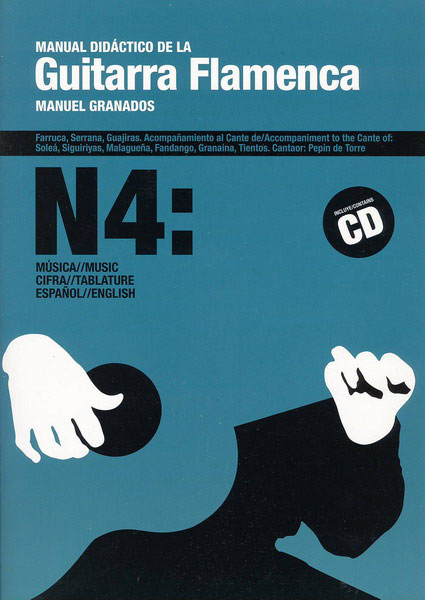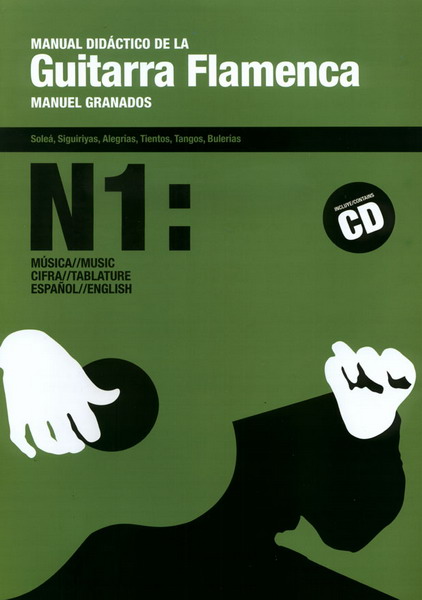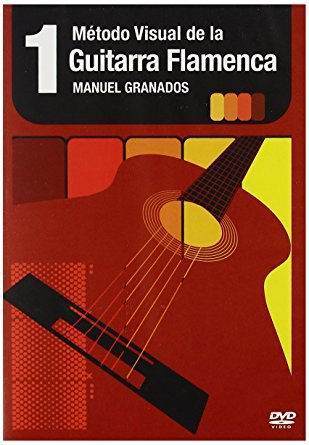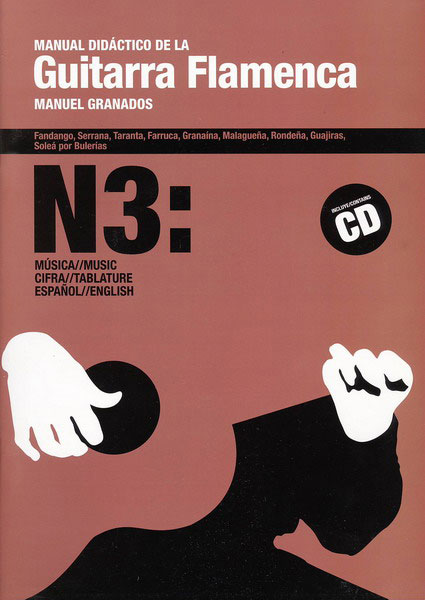- 🚚 📦 WORLDWIDE SHIPPING ✈️ 🌍
🚚 📦 WORLDWIDE SHIPPING ✈️ 🌍
Shipment period:
Shipment period 3 working days
Description:
Nowadays, several alternatives exist for the education of the Flamenco Guitar.
One of them is the traditional system of oral transmission with the exclusive perception of the pupil of what the teacher explains and plays, at a time and a place definite.
The only possible record is the fast retention in the memory of the one who learns the opportune considered thing to transmit of the part of the teacher, and his unique didactic skills that the common sense grant him in every moment.
Another alternative of education joins to the necessary words and explanatory plays of the teacher, the indispensable method and didactic skills of the musical current pedagogy.
All the knowledge should be constructed tidily and could be registered methodically in written form and with musical recording.
Still at present there are many sceptics and detractors of the education of the Flamenco Guitar by the mean of this second alternative.
They defend the exclusive utilization of the traditional system, to which, in spite of its historical importance, it is insufficient nowadays.
To try to avoid the utilization of the pedagogic and musical current knowledge in this education, it is to want to support involuntarily a complicated generational transmission of the play in most cases.
Didactic manual of the flamenco Guitar tries to help the disciple to understand the essence and subject matter of the flamenco.
Nowadays, several alternatives exist for the education of the Flamenco Guitar.
One of them is the traditional system of oral transmission with the exclusive perception of the pupil of what the teacher explains and plays, at a time and a place definite.
The only possible record is the fast retention in the memory of the one who learns the opportune considered thing to transmit of the part of the teacher, and his unique didactic skills that the common sense grant him in every moment.
Another alternative of education joins to the necessary words and explanatory plays of the teacher, the indispensable method and didactic skills of the musical current pedagogy.
All the knowledge should be constructed tidily and could be registered methodically in written form and with musical recording.Still at present there are many sceptics and detractors of the education of the Flamenco Guitar by the mean of this second alternative.
They defend the exclusive utilization of the traditional system, to which, in spite of its historical importance, it is insufficient nowadays.To try to avoid the utilization of the pedagogic and musical current knowledge in this education, it is to want to support involuntarily a complicated generational transmission of the play in most cases.
Didactic manual of the flamenco Guitar tries to help the disciple to understand the essence and subject matter of the flamenco.
One of them is the traditional system of oral transmission with the exclusive perception of the pupil of what the teacher explains and plays, at a time and a place definite.
The only possible record is the fast retention in the memory of the one who learns the opportune considered thing to transmit of the part of the teacher, and his unique didactic skills that the common sense grant him in every moment.
Another alternative of education joins to the necessary words and explanatory plays of the teacher, the indispensable method and didactic skills of the musical current pedagogy.
All the knowledge should be constructed tidily and could be registered methodically in written form and with musical recording.Still at present there are many sceptics and detractors of the education of the Flamenco Guitar by the mean of this second alternative.
They defend the exclusive utilization of the traditional system, to which, in spite of its historical importance, it is insufficient nowadays.To try to avoid the utilization of the pedagogic and musical current knowledge in this education, it is to want to support involuntarily a complicated generational transmission of the play in most cases.
Didactic manual of the flamenco Guitar tries to help the disciple to understand the essence and subject matter of the flamenco.
Reviews:
Nowadays, several alternatives exist for the education of the Flamenco Guitar.
One of them is the traditional system of oral transmission with the exclusive perception of the pupil of what the teacher explains and plays, at a time and a place definite.
The only possible record is the fast retention in the memory of the one who learns the opportune considered thing to transmit of the part of the teacher, and his unique didactic skills that the common sense grant him in every moment.
Another alternative of education joins to the necessary words and explanatory plays of the teacher, the indispensable method and didactic skills of the musical current pedagogy.
All the knowledge should be constructed tidily and could be registered methodically in written form and with musical recording.
Still at present there are many sceptics and detractors of the education of the Flamenco Guitar by the mean of this second alternative.
They defend the exclusive utilization of the traditional system, to which, in spite of its historical importance, it is insufficient nowadays.
To try to avoid the utilization of the pedagogic and musical current knowledge in this education, it is to want to support involuntarily a complicated generational transmission of the play in most cases.
Didactic manual of the flamenco Guitar tries to help the disciple to understand the essence and subject matter of the flamenco.
Nowadays, several alternatives exist for the education of the Flamenco Guitar.
One of them is the traditional system of oral transmission with the exclusive perception of the pupil of what the teacher explains and plays, at a time and a place definite.
The only possible record is the fast retention in the memory of the one who learns the opportune considered thing to transmit of the part of the teacher, and his unique didactic skills that the common sense grant him in every moment.
Another alternative of education joins to the necessary words and explanatory plays of the teacher, the indispensable method and didactic skills of the musical current pedagogy.
All the knowledge should be constructed tidily and could be registered methodically in written form and with musical recording.Still at present there are many sceptics and detractors of the education of the Flamenco Guitar by the mean of this second alternative.
They defend the exclusive utilization of the traditional system, to which, in spite of its historical importance, it is insufficient nowadays.To try to avoid the utilization of the pedagogic and musical current knowledge in this education, it is to want to support involuntarily a complicated generational transmission of the play in most cases.
Didactic manual of the flamenco Guitar tries to help the disciple to understand the essence and subject matter of the flamenco.
One of them is the traditional system of oral transmission with the exclusive perception of the pupil of what the teacher explains and plays, at a time and a place definite.
The only possible record is the fast retention in the memory of the one who learns the opportune considered thing to transmit of the part of the teacher, and his unique didactic skills that the common sense grant him in every moment.
Another alternative of education joins to the necessary words and explanatory plays of the teacher, the indispensable method and didactic skills of the musical current pedagogy.
All the knowledge should be constructed tidily and could be registered methodically in written form and with musical recording.Still at present there are many sceptics and detractors of the education of the Flamenco Guitar by the mean of this second alternative.
They defend the exclusive utilization of the traditional system, to which, in spite of its historical importance, it is insufficient nowadays.To try to avoid the utilization of the pedagogic and musical current knowledge in this education, it is to want to support involuntarily a complicated generational transmission of the play in most cases.
Didactic manual of the flamenco Guitar tries to help the disciple to understand the essence and subject matter of the flamenco.

















